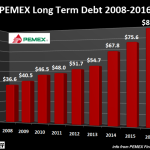U.S. oil producers set a new record last week, pumping the highest levels of crude oil ever, according to government data released on Wednesday. This surge in production continues the upward trend that has positioned the United States as the world's leading oil and gas producer.
This record-breaking output contrasts sharply with claims from GOP presidential nominee Donald Trump, who has criticized the Biden administration's energy policies, arguing they have harmed the industry. Trump has asserted that under Biden's leadership, the U.S. has lost its energy independence and is now reliant on foreign oil, a point he emphasized during a rally in Florida last month.
Preliminary data from the U.S. Energy Information Administration (EIA) shows that oil companies pumped an average of 13.4 million barrels per day during the week ending August 2, surpassing the previous record of 13.3 million barrels, a figure reached multiple times this year. U.S. oil production has been on a steady rise since 2008, with an annual peak in 2023 that is expected to be surpassed this year.
Analysts have noted that the EIA may revise these numbers when more comprehensive monthly data becomes available. Despite a reduction in the number of active drilling rigs compared to last year, oil companies have become more efficient in their operations, as evidenced by this new production high.
The increase in U.S. output is seen as compensating for the supply cuts made by OPEC+ nations, including Russia. This has surprised many in the industry, as it was previously thought that U.S. production would not reach these levels.
Trump, speaking at the National Association of Black Journalists in Chicago last week, criticized the Biden administration’s environmental policies, claiming they are detrimental to the country. His campaign has also accused the administration of adopting his energy strategies to lower gas prices in time for the upcoming election.
Meanwhile, average U.S. gasoline prices remain around $3.45 per gallon, higher than pre-pandemic levels under Trump but lower than the peaks seen during the Ukraine conflict in 2022. These prices are closely tied to crude oil costs, which have remained elevated despite the record U.S. output.
Vice President Kamala Harris, while not yet outlining her own energy policy, has stated that she would not ban fracking, marking a shift from her 2019 stance. This technology has been pivotal in boosting U.S. oil and gas production.
The Biden administration has faced criticism from Republicans and some in the oil industry for increasing royalty fees on oil production on federal land and limiting the availability of that land for drilling. Despite this, a recent federal lease sale in North Dakota and Montana attracted significant interest, with companies bidding $24 million for over 5,500 acres.
Environmental groups continue to challenge the administration’s policies, calling for more stringent controls on the oil industry to address climate change. Nicole Ghio of Friends of the Earth Action emphasized the industry's role in the current climate crisis and expressed hope that Harris would take stronger action if elected.
This ongoing debate reflects the broader tension between energy production, environmental concerns, and economic policies as the U.S. continues to navigate its role as a leading global energy producer.
 Español
Español








